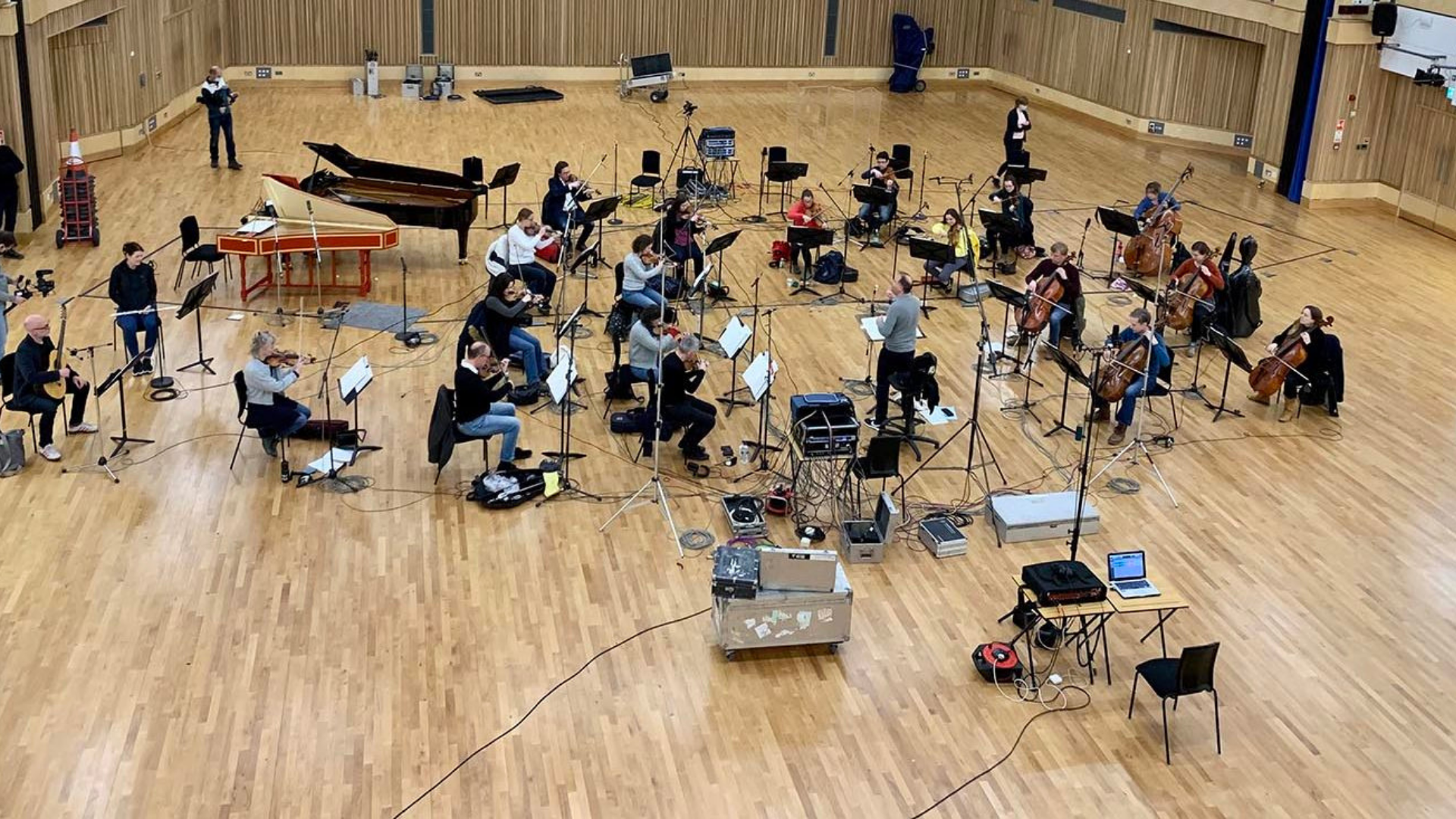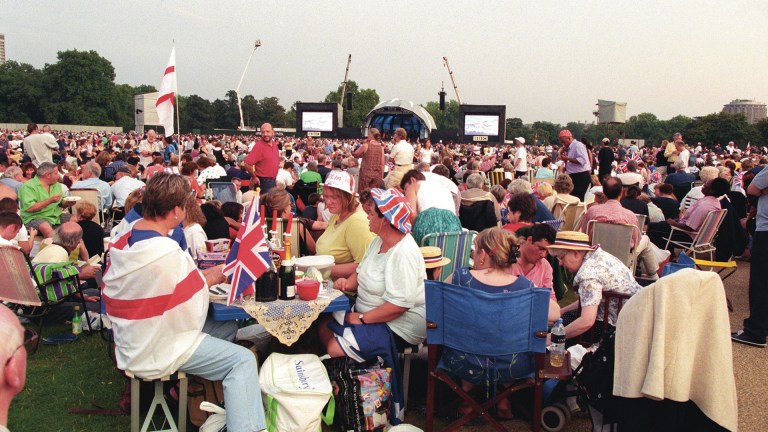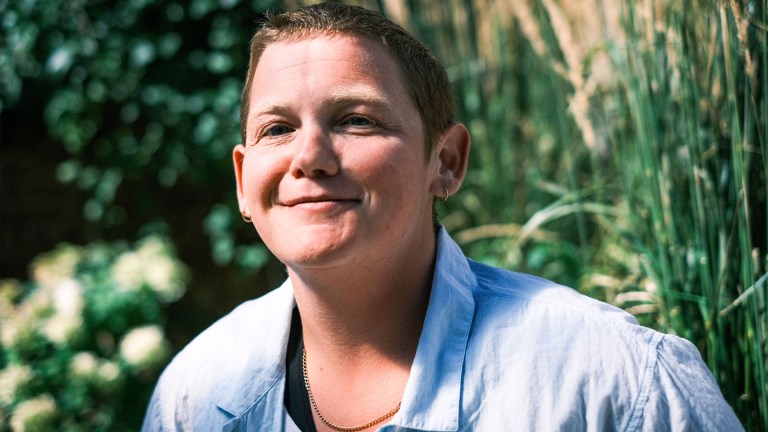A shoeless engineer pads around Saffron Hall’s wooden floors, titivating microphones. He rejoins the technical team sat in the adjacent foyer; one colleague fiddles with the sound desk, another pores over scores.
The Orchestra of the Swan (OOTS)’s manager uses a two-metre pole to ensure that chairs are appropriately spaced, systematically wiping stands with disinfectant. In order to allow the necessary space between each musician, the ground-floor seating has been cleared in the Essex concert venue.
Support The Big Issue and our vendors by signing up for a subscription.
It’s one of the few places large enough to facilitate an orchestral recording session under the new conditions, which is why the ensemble – usually based at Stratford-upon-Avon’s Play House – has chosen it as the site to record the next instalment of its innovative mixtape series. Created by artistic director David Le Page, the mixtape albums and streamed concerts combine music from across the centuries, pairing Rameau with Radiohead and Piazzolla with Pink Floyd.
COMING SOON…TIMELAPSE 2.0
Where sounds of the past and present collide to form a unique musical landscape. Featuring @trishclowes and @DavidGo36928080
Stream from the 26/04/21. #digitalconcert #classicalmusic #NewRelease pic.twitter.com/hDE3Gs2sqj
— Orchestra of the Swan (@Orchestra_Swan) April 13, 2021
Saffron Hall opened in 2013 and was made possible by a gift from an anonymous local donor. The philanthropist gave more than £10m to Saffron Walden County High School, in whose grounds Saffron Hall is built.








